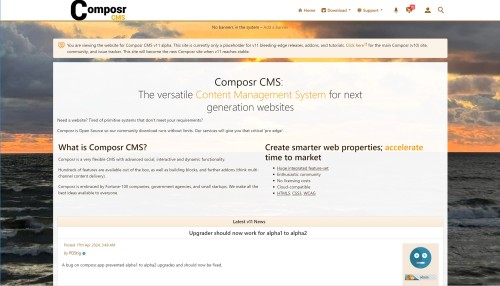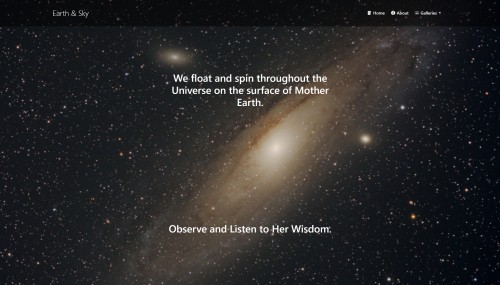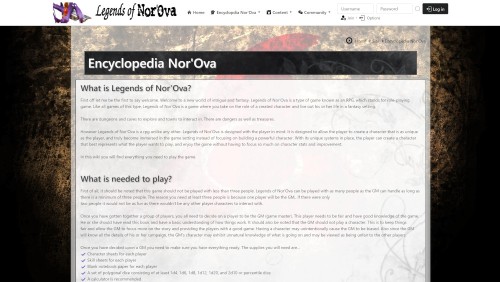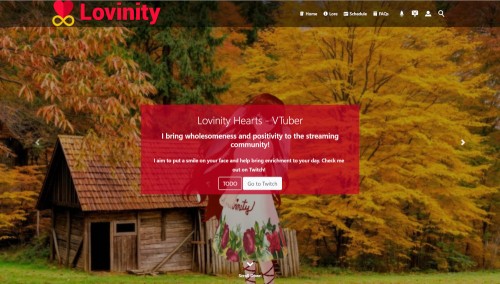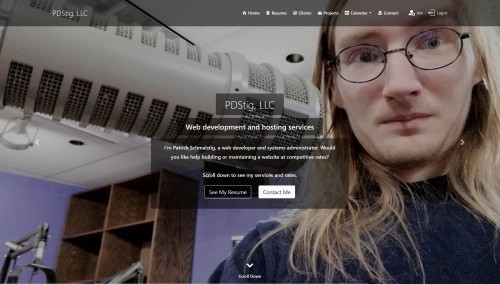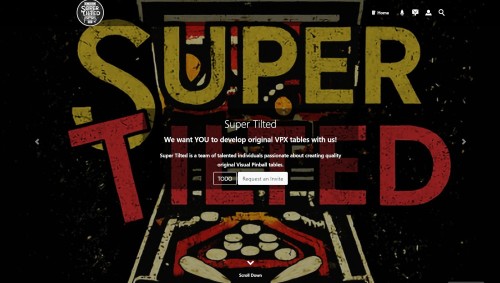Featured Sites: A-Z Index
H
Newest 10 Entries
| Title | Integration |
|---|---|
| Icon |  |
| Description | Convert from other software: See our importing tutorial for a list of importers. Use an existing member system: See our download page for a list of forum drivers. Convert an HTML site into Composr pages LDAP support for corporate networks (Conversr only) HTTP authentication: Tie into an existing HTTP authentication-based login system (Conversr only) Proxying system: Programmers can integrate any existing scripts using our sophisticated proxying system (which includes full cookie support). Minimodules and miniblocks: Programmers can port existing PHP code into Composr itself without having to strictly conform it to Composr's framework |
| Title | Structure / Navigation |
|---|---|
| Icon |  |
| Description | Intuitive sitemap editor: Visually browse your site structure. Menu editor: Our user friendly editor can work with several different kinds of menu design (drop-downs, tree menus, pop-ups, etc) Zones (sub-sites): Organise your pages into separate zones. Zones can have different menus, themes, permissions, and content. They can also use a sub-domain. Full structural control: Edit, move, and delete existing pages and modules. Redirects: Set up redirects if you move pages, or if you want pages to appear in more than one zone. |
| Title | White-labeling (Debranding) |
|---|---|
| Icon |  |
| Description | Use Composr for clients and pretend you made it. We ensure Composr is not hard-coded anywhere in the software where it would appear to an average user. |
| Title | Web standards |
|---|---|
| Icon |  |
| Description | Responsive design and hi-dpi images True and correct XHTML5 markup WCAG, ATAG: Meeting of accessibility guidelines in full. Tableless CSS markup, with no hacks Support for all major web browsers Inbuilt tools for checking webstandards conformance of XHTML5, CSS, and JavaScript Extra markup semantics including Dublin Core support, schema.org, Open Graph, and microformats. Standards-based JavaScript (modern DOM and AJAX, no DOM-0 or innerHTML) Automatic cleanup of bad XHTML5: HTML outside your control (e.g. from RSS) will be cleaned up for you. |
| Title | Performance |
|---|---|
| Icon |  |
| Description | Highly optimised code Can run CDNs Multiple levels of caching Sophisticated template compiler Self-learning optimisation system Automatic pruning of old cache files when caches get large |
| Title | Localisation |
|---|---|
| Icon | 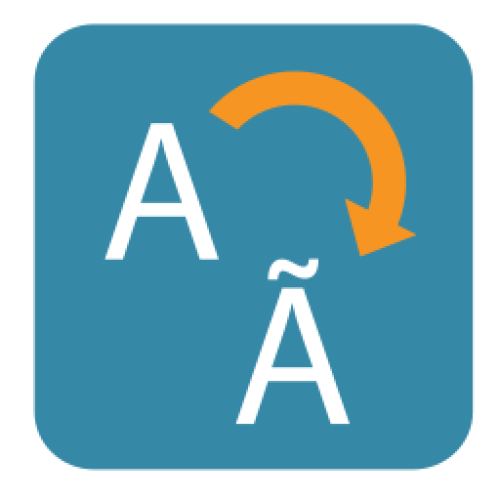 |
| Description | Translate Composr into your own language Translate content into multiple languages Custom time and date formatting Language packs: Download new language packs as users post them; host multiple languages on your website at the same time. Time zone support: Members may choose their own time zones, and dates / times will adapt to them. Support for different character sets and Unicode Serve different theme images for different languages Right-to-left languages possible |
| Title | Ease of Use |
|---|---|
| Icon |  |
| Description | Professionally designed user interfaces AJAX techniques: Streamlined website interaction. WYSIWYG editing Tutorials: Over 200 written tutorials, and a growing collection of video tutorials. Displays great on mobiles: Mobile browsers can be automatically detected, or the user can select the mobile version from the footer. All public website features work great on QVGA or higher. The default theme is also responsive and will adapt to the client screen size. A consistent and fully integrated feature-set: Breadcrumb navigation, previews, and many other features we didn't have space to mention here – are all present right across Composr. |
| Title | Search Engine Optimisation |
|---|---|
| Icon |  |
| Description | Supports different URL schemes and textual monikers Automatic site-map generation: Both XML Sitemaps and sitemaps for users. Metadata: Meta descriptions and keywords for all content. Auto-summarisation. Keyword density analysis when previewing content Correct use of HTTP status codes Content-contextualised page titles Semantic and accessible markup (e.g. ‘alt tags') |
| Title | Privacy Tools |
|---|---|
| Icon |  |
| Description | Compliance with major data protection legislation such as the GDPR Allow members to download or purge their personal data from their profile. Set a limit on the number of days between downloads / purges to preserve server resources. Also manage member data to a more technical degree in the Administration Zone. Allow members to purge their data upon deleting their member account Composr is careful to maintain important data (such as warnings or bans) when members request their data to be purged from their profile. But this data can still be purged on the admin side (in the Admin Zone). Automatic generation of a basic Privacy Policy based on site settings and installed addons Cookie Consent notice Set declarations on the rules page which members must agree to on registration (or whenever they are changed) which are also stored in the database and e-mailed to the member as a written copy |
| Title | Security |
|---|---|
| Icon |  |
| Description | Automatic detection, logging, notifying, and banning of hackers 2-factor-authentication: E-mail based 2-factor-authentication security when unrecognised IP addresses are used with certain usergroups (optional, Conversr-only). Password strength checks: Enforce minimum password strengths based on length and use of upper / lower case, numbers, and symbols, and avoiding repeated characters (Conversr-only). Architectural approaches to combat all major exploit techniques A JavaScript framework that makes XSS attacks virtually impossible Defence-in-depth: Multiple layers of built-in security. Encrypted custom profile fields: Once set the CPF can't be read unless a key password is entered (Conversr-only, requires OpenSSL). Extensive support and use of Content Security Policy (CSP) Track failed logins and automatically ban brute-force attacks HTML filtering Protection against CSRF attacks: Forms and AJAX requests make use of randomly generated POST tokens Root-kit detection kit for developers Cookies are secure and HttpOnly where possible to prevent session hijacking Set number of days that passwords expire or must be changed |
Top 10 Entries
| Question | What notification options are available to members? |
|---|---|
| Answer | Members can choose from a wide range of notifications, including:
Members can choose to receive notifications via:
|
| Question | Can I share content like news and banners across the M.S.N.? |
|---|---|
| Answer | Yes, you can share news by placing it on the central site and using RSS blocks on satellite sites to display it. Banners can be shared by adding them to the central site and configuring satellite sites to use the central site's banner.php script. |
| Question | What should I consider when managing usergroups for subcommunities? |
|---|---|
| Answer |
|
| Question | What are Composr Clubs and how are they useful for subcommunities? |
|---|---|
| Answer | Clubs are special usergroups in Conversr (Composr's forum system) designed for creating subcommunities. They come with their own dedicated forums and are managed by members, taking pressure off site staff. Key features:
|
| Question | What are redirects and how can I use them for subsites? |
|---|---|
| Answer | Redirects let you create custom URL paths that point to different zones and pages within your site. Examples:
Go to Admin Zone > Structure > Redirects. |
| Question | What are virtual roots and how do I use them? |
|---|---|
| Answer | Virtual roots let you make a sub-category within a Composr module (e.g., downloads) appear as the top-level category. This is useful for creating separate "databases" of content for different subcommunities. To create a virtual root:
|
| Question | Can I have subsites and subcommunities within a single Composr installation? |
|---|---|
| Answer | Yes, Composr offers various tools to create subsites and subcommunities within a single installation:
|
| Question | What is the difference between a central site and a satellite site in an M.S.N.? |
|---|---|
| Answer | The central site hosts the shared forum, member database, and netlink system. It is the core of your M.S.N. Satellite sites are the additional websites within your network. They connect to the central site for member information and forum access. |
| Question | What are the advantages and disadvantages of using an M.S.N.? |
|---|---|
| Answer | Advantages:
Disadvantages:
|
| Question | What is a multi-site network (M.S.N.) in Composr? |
|---|---|
| Answer | An M.S.N. allows you to run multiple Composr websites (installations) that share a common forum and member database. It's ideal for website networks with shared communities but segmented content, staff, or branding. In essence, members who join one site automatically have accounts on all sites within the network. |



